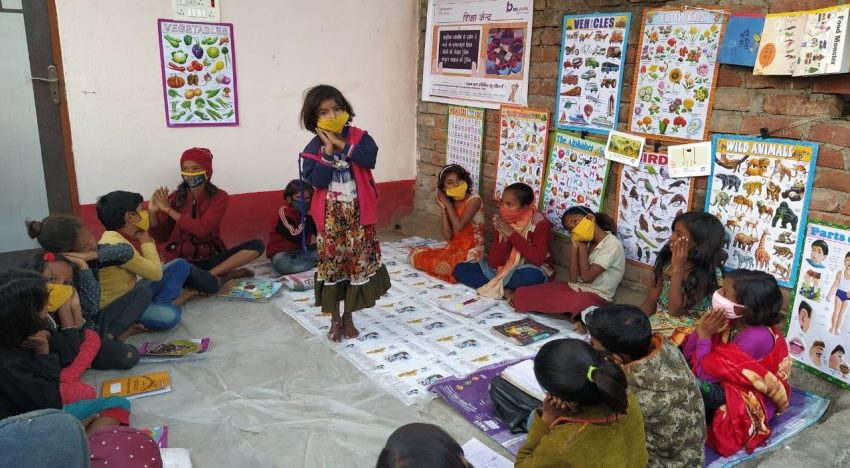According to a popular adage, an investment in knowledge education pays the best interest, and the unique Teach for India Fellowship [TFI] initiative has proven to be just that – an investment that has benefited the field of education for over a decade. Teach for India Fellowship (TFI’s) founding mission has been to ensure that no child is left uneducated, with the goal of reaching out to each and every child in our country in the near future. They recognised, however, that their educational mission should be expanded beyond the seven metro cities. The dream of spreading the wings to the rest of the country appeared to be progressive. Teach for India’s Incubation Program [TFIx] was established to assist edu-preneurs throughout the country in reaching the last child. As a result, it accelerated Teach for India Fellowship (TFI’s) vision of educating every child in the country.
The new generation of entrepreneurs in the education space were prepared through TFIx’s Incubation Program, which began in 2017. Apart from the seven metros already established, the incubation began assisting edu-preneurs across India in organising a high-impact programme through their own contextual Fellowship Program. The primary beneficiaries were regional edu-leaders who desired to expand their already established organisations in order to reach more children and develop more local leaders. This process began to instil a greater sense of leadership in them. These new-age Ed-entrepreneurs received tailored support in villages, marginalised communities, and urban areas alike.
The incubation programme has three objectives, the first of which is to assist entrepreneurs in establishing and maintaining high-impact Teaching Fellowships in their respective contexts. These entrepreneurs receive one year of training and mentoring based on their context, which may include girls’ education, experiential science, sports, storytelling, life skills, and holistic learning, among other things. There are 23 TFIx-incubated entrepreneurs currently running fellowships in a variety of domains, and 11 more are in the process of incubation to advance knowledge and education for all.

Teachers use mind-maps to enrich the students
Through the Teach for India Fellowship (TFI) Incubation, these leaders learn how to make an impact and also how to sustain their educational projects. Seeing the plight of students and the inability of children and their families to choose the correct path, Divakar – an IIT and IIM alumnus – realised he needed to do something about children’s struggles to make the right choice. This prompted him to accept the challenge and apply for the 2012 TFI fellowship.
Through the fellowship experience, Divaker discovered his passion for education. He founded Alohomora three years ago and has been establishing successful careers for youth from underserved communities ever since. By 2025, he intends to empower 1 million young adults to pursue careers that match their interests and aptitudes. Fellows in the incubation programme gain extensive exposure to the educational system’s grassroots realities while being trained to develop the knowledge and skills necessary to emerge as educational leaders.
The program’s second objective is to create communities of entrepreneurs that act as a lifelong support system for one another. Cohorts are formed when participants come together to explore the TFIx Fellowship Model’s foundations. TFIx supports in-person training, programme partner visits, webinars, and fellowship site visits that are typically residential. Ravi is an example of a beneficiary of this type. He is from Bihar and graduated from Delhi University.

Rural students enjoying the classes
Ravi was already sensitive to the bleak reality of rural students having been a part of the education system in Bihar. Additionally, The Prime Minister’s Rural Development Fellowship (PMRDF) exposed him to the grim realities of Naxal-bombed school buildings, classrooms converted into cowsheds, and children and youth with abysmal learning levels – all in an extremism-affected district in Bihar. He quickly recognised the critical importance of community engagement and grassroots leadership in ensuring children receive a quality education. Ravi is now devoted to developing female community educators in order to enhance the educational experiences of underserved children through the establishment of the i-Saksham Education and Learning Foundation.
Numerous individuals, such as Ravi and Divakar, are gaining tremendous benefits from Teach For India’s Incubation Program – TFIx. TFIx is particularly effective at achieving the program’s third goal, which is for each entrepreneur to develop an awareness of their internal and external ecosystems in order to leverage the maximum amount of support available to them, particularly through the Learning Circle Sessions. These sessions are held at the chosen location of one of the cohort’s entrepreneurs to foster peer-to-peer learning. These are residential training sessions during which entrepreneurs participate in 4-5 days of sessions covering topics such as programme design, monitoring and evaluation, organisational strategy, and others. After the LC Training session concludes, programme partners will be visited.
This is where a dedicated TFIx Program Partner works closely with the entrepreneur to provide tailored support. Weekly calls become standard, as do entrepreneur site visits four to five times a year. It is organised around the development of relevant knowledge and skills, including Fellowship Foundation, Fellowship Recruitment, Selection, and Marketing, Student and Fellow Curriculum, Fellowship Strategy, People Development, and Fund-Raising.
Vivek Kumar, the Kshmatalya Foundation‘s founder, began his work in Kotra, Rajasthan, and Delhi. He relocated to a tribal village in order to gain a better understanding of the role of education in the most marginalised communities, where he discovered two things. To begin, tribal people place a premium on education, which is why they do not send their children to schools that provide substandard education. Second, tribal communities value the development of meaningful relationships. When they are presented with opportunities for engagement in which they understand the purpose and meaning, they engage wholeheartedly. This is when Vivek decided to incorporate community engagement, systematic change in education at the block level, with a particular emphasis on integrated pedagogy and 21st century life skills, and finally, the formation of Kshamtalya to increase demand for quality education through the development of regional leadership.
Students take pride in leading the show
Entrepreneurs at TFIx are leaders who are eager to join a movement for educational equity. Apart from their passion and dedication to the movement, they admit to possessing leadership potential that they can nurture during their one-year incubation. TFIx Entrepreneurs are innovative individuals who run educational organisations and reach children in a variety of ways.




